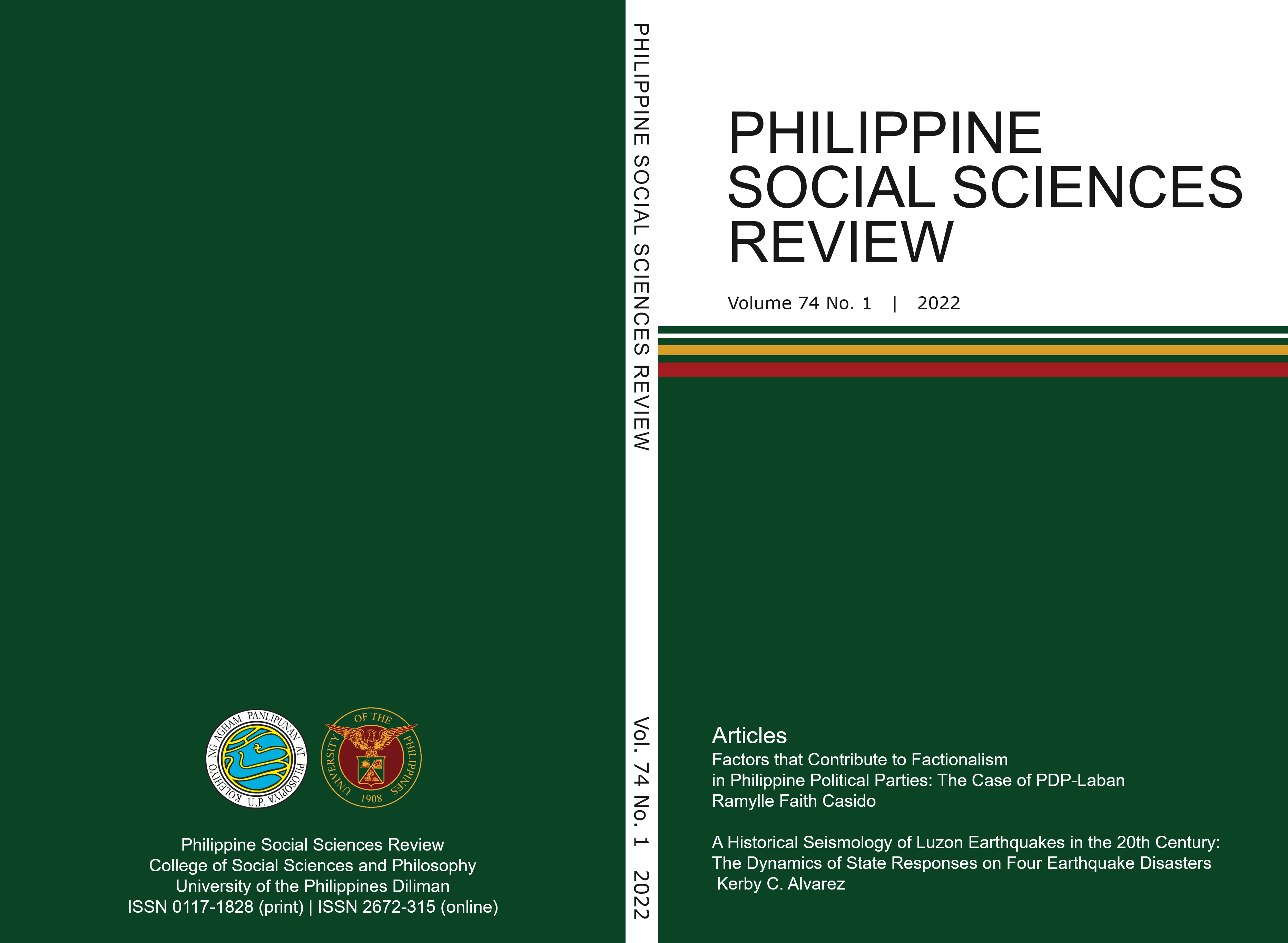Factors that Contribute to Factionalism in Philippine Political Parties: The Case of PDP-Laban
Abstract
PDP-Laban is one of the most notable parties during Martial Law because the party helped oust the late dictator. However, infighting and factionalism within the party affected their image and reputation. The paper focuses on the case of factionalism that emerged in PDP-Laban right after the authoritarian regime. The article aims to contribute to the study of Philippine Politics by further discussing the factors contributing to factionalism particularly in the case of PDP-Laban party. Results show that disunity, different ideologies, and the existence of so many elite leaders and political dynasties with a good number of followings in PDP-Laban triggered the emergence of factions in the party. The party that once helped oust a dictator lost its essence over time. Anti-Party hopping law and adaptation of a Closed-List Proportional Representative (CLPR) may urge the parties to be disciplined and show loyalty to their respective party. It could also lessen the rampant party switching and factionalism.
Published
2024-05-27
How to Cite
CASIDO, Ramylle Faith.
Factors that Contribute to Factionalism in Philippine Political Parties: The Case of PDP-Laban.
Philippine Social Sciences Review, [S.l.], p. 1-30, may 2024.
ISSN 2672-3158.
Available at: <https://journals.upd.edu.ph/index.php/pssr/article/view/9650>. Date accessed: 02 oct. 2025.
Section
Articles


